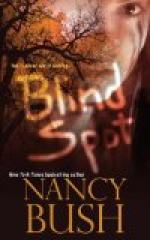“That’s what I call living!” he grinned. “They can keep on looking for the June Bug all night!”
Chick looked out. They were inside the great room from which they had started; the trip was over; the plunge had been made in safety. Chick took a long breath, and held out a hand.
“A man after my own heart, Jan Lucar. I foresee that we may have great sport with the Senestro.”
“Aye, my lord,” cheerfully. “The presumptuous usurper! I only wish I could kill him, instead of you.”
“You are not the only one,” commented the Rhamda. “Half of the Rhamdas would cheerfully act as the chosen one’s proxy.”
And so ended the events of Chick Watson’s first day beyond the Blind Spot, his first day on the Thomahlia; that is, disregarding the previous months of unconsciousness. He had good reason to pass a sleepless night in legitimate worry for the outcome of it all; but instead he slept the sound sleep of exhaustion, awakening the next morning much refreshed.
He reminded himself, first of all, that today was the one immediately preceding that of his test—the Day of the Prophet. He had only a little more than twenty-four hours to prepare. What was the best and wisest proceeding?
He called for the Geos. He told him what data he wanted. The Rhamda said that he could find everything in a library in that building, and inside a half-hour he returned with a pile of manuscripts.
Left to himself, Chick found that he now had data relating to all the sciences, to religion, to education and political history and the law. The chronology of the Thomahlians, Chick found, dates back no less than fifteen thousand years. An abiding civilisation of that antiquity, it need not be said, presented somewhat different aspects from what is known on the earth.
It seemed that the Jarados had come miraculously. That is, he had come out of the unknown, through a channel which he himself later termed the Spot of Life.
He had taught a religion of enlightenment, embracing intelligence, love, virtue, and the higher ethics such as are inherent in all great philosophies. But he did not call himself a religionist. That was the queer point. He said that he had come to teach an advanced philosophy of life; and he expressly stated that his teachings were absolute only to a limited extent.
“Man must seek and find,” was one of his epigrams; “and if he find no more truths, then he will find lies.” Which was merely a negative way of saying that some of his philosophy was only provisional.
But on some points he was adamant. He had arrived at a time when the unthinking, self-glorifying Thomahlians had all but exterminated the lower orders of creation. The Jarados sought to remove the handicap which the people had set upon themselves, and gave them, in the place of kindness which they had forgotten, how to use, a burning desire for a positive knowledge, where before had been only blind faith. Also, he taught good-fellowship, as a means to this end. He taught beauty, love, and laughter, the three great cleansers of humanity. And yet, through it all—




